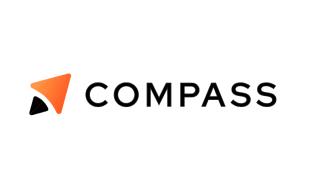
The field of cybersecurity continues to garner increasing attention as cybercrime continues to rise. Government agencies, hospitals, higher education institutions, power companies and prominent business enterprises are among some of the sectors experiencing an onslaught of elaborate hacks and thefts.
According to a report by the global consultancy Deloitte, 75 percent of the CEOs and board members surveyed cited cybersecurity as a concern at the top of their priority lists.
The cybercrime landscape has become increasingly complex as bad actors have become unrelenting in their attempts to loot valuable financial and personal data, intellectual property and health records, as well as other private information. Many involve highly profitable heists executed through DDoS attacks and sophisticated ransomware approaches.
Blockchain Technology: A Viable Solution for Mitigating Cybercrime?
Blockchain technology’s connection to cybersecurity is tied to years of research and advancements in the field of cryptography. The technology, which launched as an integral part of Bitcoin, offers the ability to record and share data without a central authority — preventing “double spends” and resisting hacks.
As a result, this technological space has emerged as a promising solution for safeguarding data from hackers, stamping out fraud and minimizing the likelihood of data being compromised or stolen.
Blockchains, like the Bitcoin network, offer a cutting-edge approach to storing information, facilitating transactions, managing digital functions and establishing trust — a key solution for environments necessitating high-security requirements and barriers against malicious actors.
By minimizing much of the human element inherent in data storage systems, blockchains can help eliminate human error, one of the biggest catalysts of data breaches.
As a public ledger of digital transactions, without a centralized storage location or authority, Bitcoin, through its consensus mechanism approach, has demonstrated a potentially robust use case in defending against cyber intrusion activity. By employing a decentralized model, blockchains verify the data throughout their constellation, ensuring that existing information cannot be altered or removed.
Inherent in its decentralized nature, Bitcoin provides no “hackable” entrance or a central point of failure and, thereby, provides more security when compared with database-driven transactional structures.
Blockchains (though not Bitcoin’s) can also provide organizations with an auditing mechanism for assessing cyber attack risks. Here, data that’s potentially been compromised on a blockchain network can be easily traced, providing a mechanism for the corrupted data or transactions to be revoked from the network. This delivers an added level of reassurance that the data is authentic and hasn’t been tampered with.
Cybersecurity Education’s Next Frontier
Ever since its introduction, Bitcoin has excited technology-driven idealists around the world. Questions were quickly asked about how the breakthrough technology behind the cryptocurrency could be leveraged for other applications. For years, many have wondered how blockchains could be put to work to enhance cybersecurity.
One global education institution stepping forward to address this question is Edith Cowan University, based in Western Australia. Through an accelerated, online Master of Cyber Security program it offers, students may complement their interest in blockchain technology and gain credentials that help them start their own small business or enter the workforce.
It’s also worth noting that the university is a partner with the Australia-based Cyber Security Cooperative Research Centre, a nonprofit that aims to deliver cybersecurity research while also offering innovative solutions to the cybersecurity space.
According to (ISC)2, the world’s largest nonprofit association of certified cybersecurity professionals, a wide workforce gap of nearly 3 million cybersecurity professionals exists in the world. The study found that 63of organizations are experiencing either a significant or slight shortage of staff dedicated to cybersecurity work. Moreover, 59reported that they are at extreme or moderate risk due to cybersecurity staff shortages.
Considering the aforementioned, talent is still greatly needed in the cybersecurity space. It’s here that blockchain technology is poised to take its next steps forward, advancing as a revolutionary technology for data protection.










